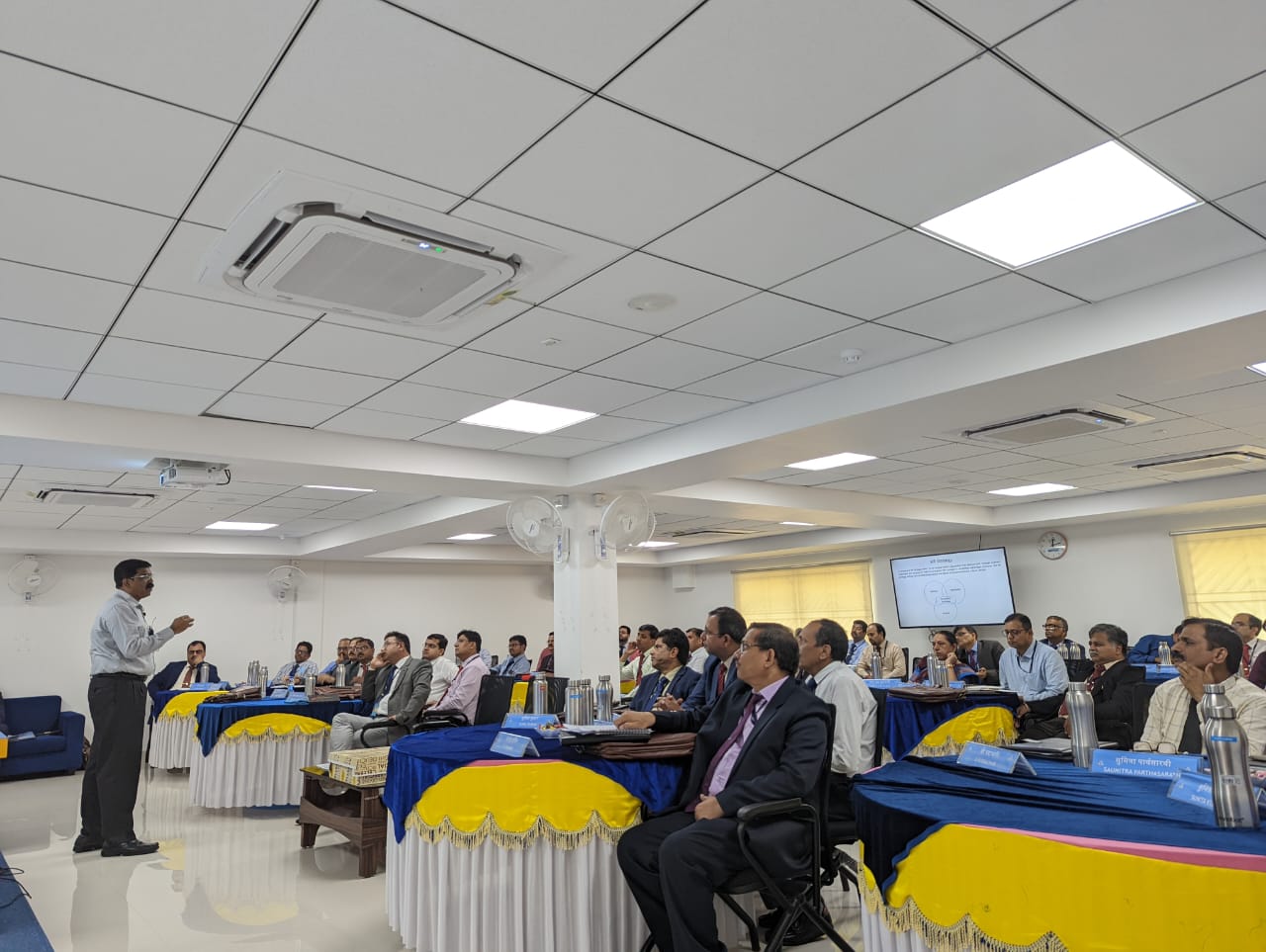Invited Guest Lecture on ‘Current US Economic Climate’
December 16, 2015

INVITED GUEST LECTURE ON ‘CURRENT US ECONOMIC CLIMATE’
School of Management, Manipal Academy of Higher Education organized an invited guest lecture on ‘Current US Economic climate’ led by a delegation of expert academicians from Carl H Lindner College of Business, University of Cincinnati on 16th Dec 2015. Prof. Nicholas Williams, Head, Department of Economics, and Prof. Michael Neugent, Academic Director of the MS Finance program, Prof. Raj Mehta Professor of Marketing and Director of University Honors Program, at the University of Cincinnati interacted with the students on the effects of U.S. monetary policy on other countries, especially emerging-market economies like India.
Prof. Nicholas extensively spoke on the current economic condition in the US including the inflation rates, unemployment rates and duration. He also made a comparative analysis of the growth indexes of India, China and the US. He exclaimed that the current growth rate of Indian economy is quite remarkable and truly reciprocates with the efforts of the current Modi led govt. at the center. He also observed that the ‘Make in India’ strategy can truly drive the growth index of the economy in the coming years.
Professor Nicholas then reminded students that it was a crucial time in USA as the important policy decision on Federal Reserve rates were going to be decided upon in the following days. It was expected that the base points will increase by 25 points. The Federal Reserve had slashed the federal funds rate — the interest rate at which banks lend to each other or borrow from the Fed itself — earlier to nearly nothing amid the financial crisis in 2008 as the nation fell into recession. This was done so that businessmen could take loans from US banks at zero interest rate and invest in business. By lowering the cost of borrowing money, the Federal Reserve aimed to stimulate lending by the banks and therefore economic growth.
But when the interest rate is low, other countries would not invest in US. This is because they would not get higher returns. Therefore other countries who were not investing in US, started investing in India. He said that this was one of the reasons why India was relatively unaffected by the global crisis.
Prof Nicholas observed that the first rate increase in seven years signaled the Federal Reserve's renewed confidence in the country's economic recovery. “The unemployment rate was 5 percent in November, down from a peak of 10 percent in 2009. This increase is important because it reflects the economy getting better," commented Prof. Neugant. “If interest rates continue to rise, it could eventually lead to higher interest rates on savings accounts. This would make investing in US economy profitable once again. The countries which invested in India earlier, would divert their capital to US. This would negatively affect India since, given the financial constraints, India is dependent on foreign capital. But the cost of borrowing also will increase — an effect likely to be felt more immediately”
Prof. Nicholas zrepeated the students that the US dollar sits at the center of the global financial system and any decision by the Federal Reserve can cause ripples throughout the global economy. “While a slowing down of the Chinese economy has already rattled markets worldwide, a rate hike in the US could come as another setback for emerging economies such as India. A strong dollar has always meant bad news for these economies since global capital may start flowing back into US treasury bonds. And if FIIs in debt markets rush to pull out following a possible Federal Reserve rate hike, that could end up putting pressure on the Indian rupee.”
Prof. Michael Neugent, spoke about the newly established collaborative engagements between Carl H Lindner College of Business, University of Cincinnati, USA and SOM, Manipal Academy of Higher Education including student exchange, joint research and strategic partnership. Mr. Aditya Kamath First year MBA student welcomed the gathering and Ms. Priyanka Amin First year MBA student proposed vote of thanks.




